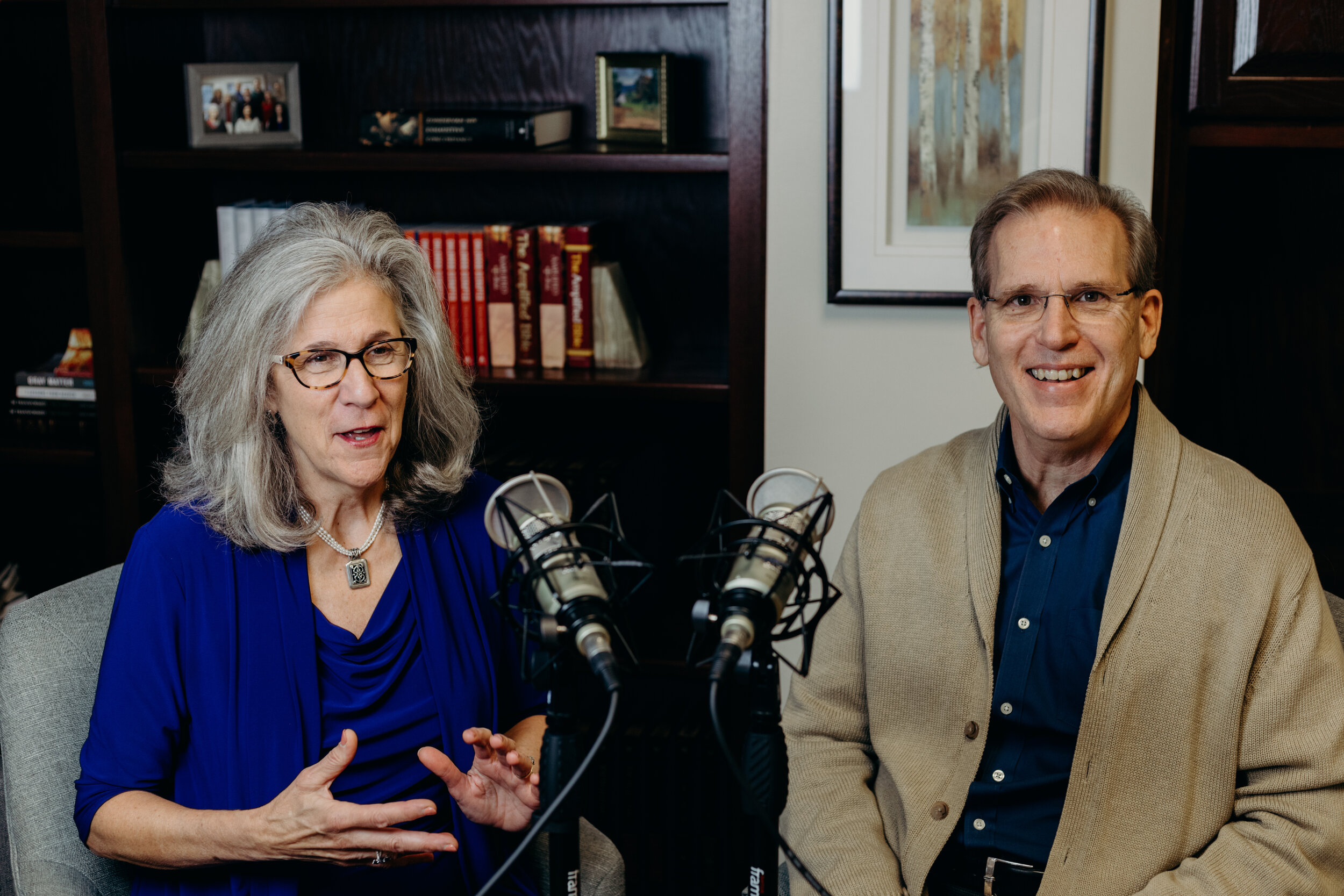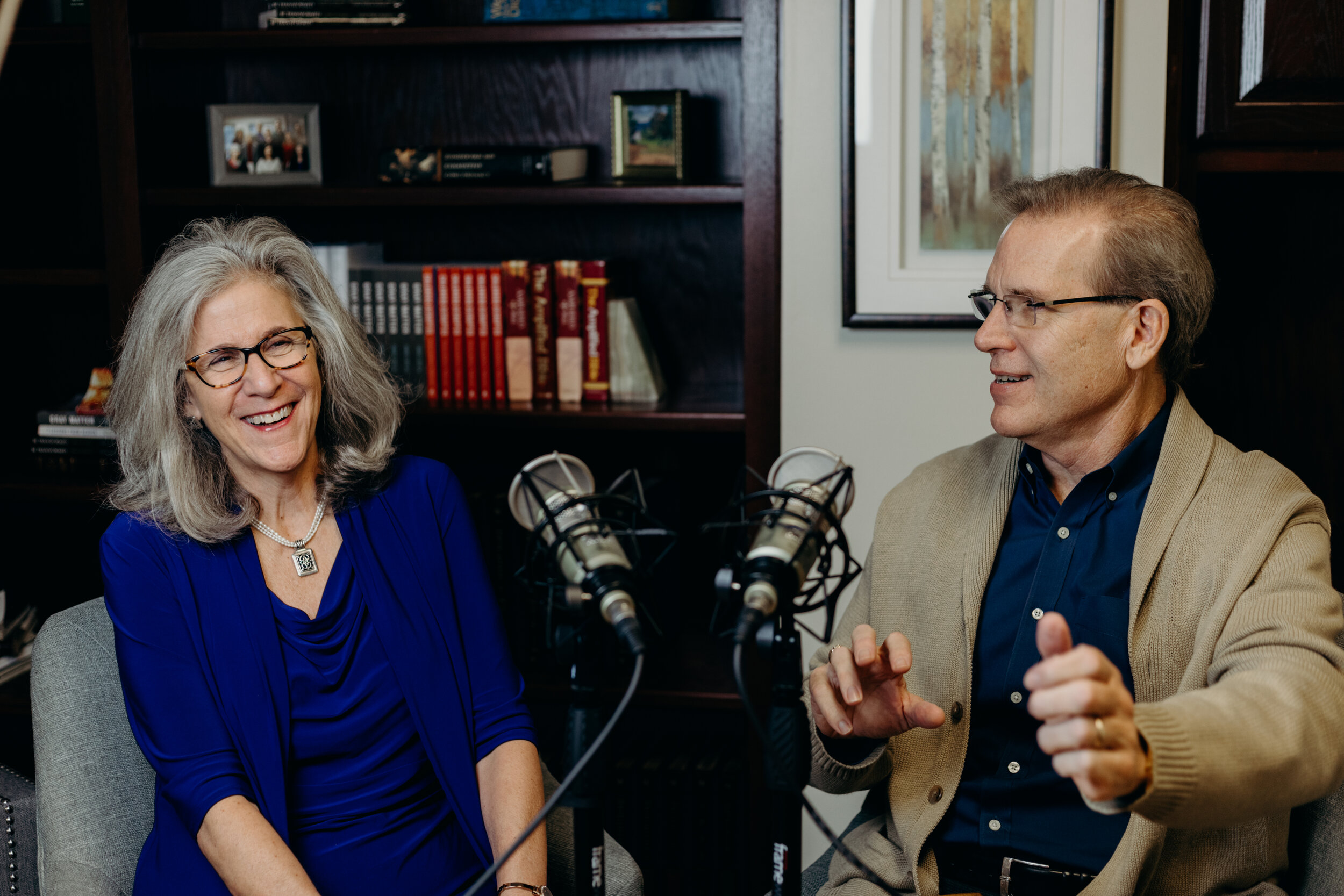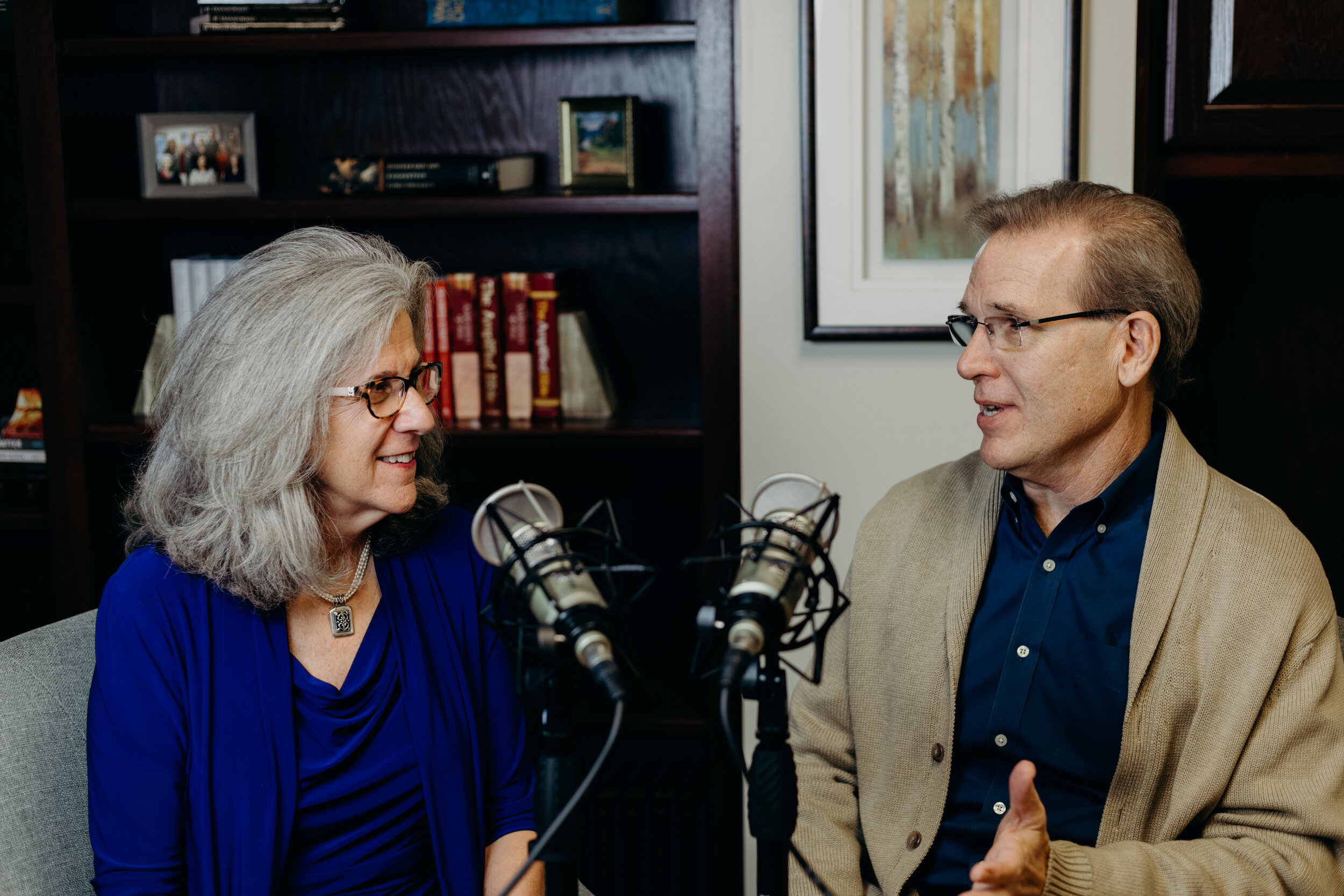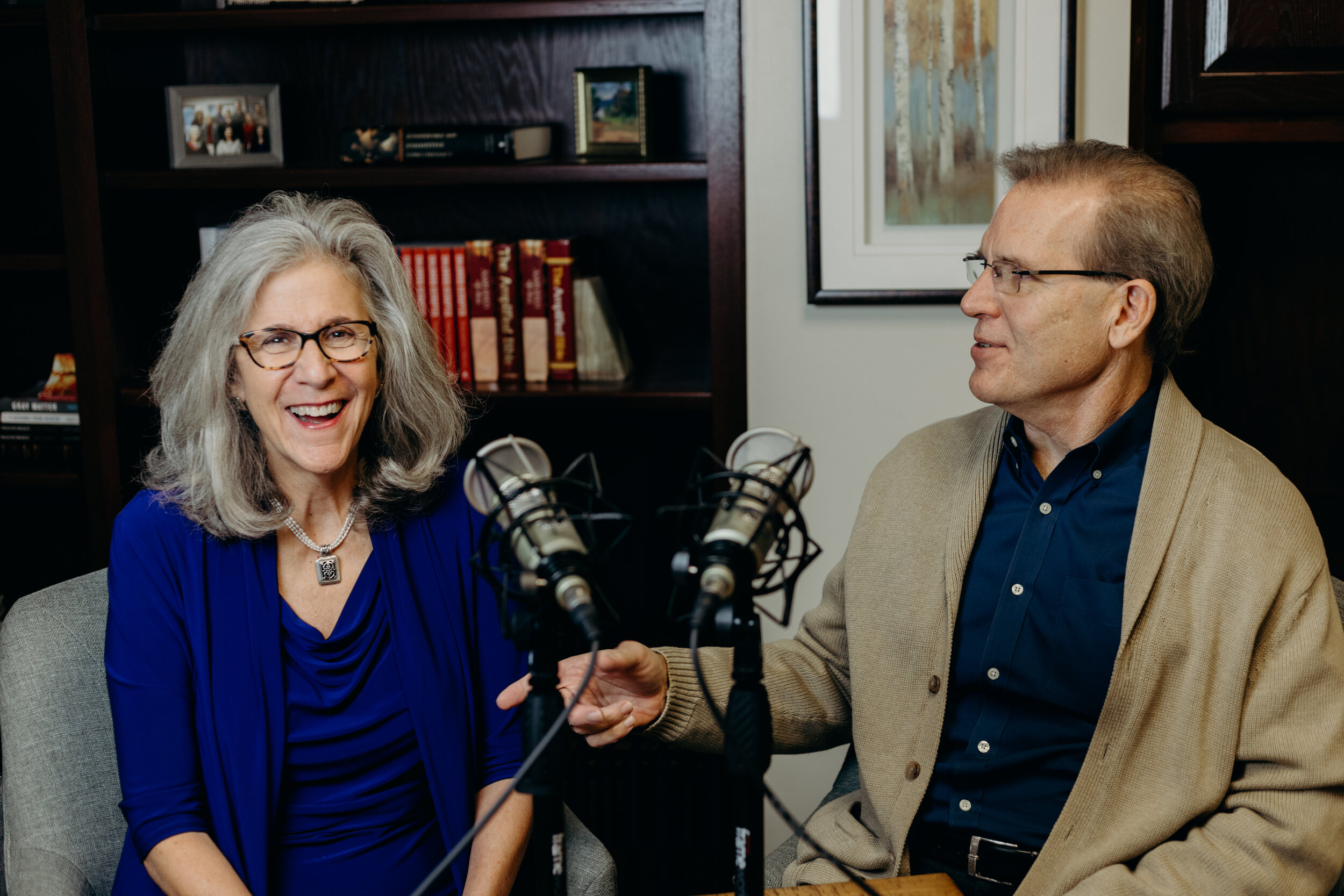Choices: Understanding What Motivates our Decisions
Listen to the Episode
Summary
Why would our choices ever be different from our will? Yet they quite frequently are. Most of us have asked “Why didn’t I…?” or “Why can’t I just get myself to do that?”. Often followed by the realization: “I know better than that!”.
The question of why our decisions are often not aligned with our will is the topic for this podcast. We discuss what drives our choices and how God can help us make decisions that are more consistent with who we want to be in life.
In His Peace,
John and Beth Murphy
-
John Murphy:
This is the Rockhouse Center podcast, and I'm John Murphy.Beth Murphy:
I'm Beth Murphy, and we're here today to address a critically important question parents ask us almost every time they call. They’re mystified by a situation with a child where they've done everything they know—consequences, punishment, teaching wisdom, making clear what choices lead to good outcomes—and nothing works. They’re dealing with behavior or emotions where their children are struggling, and they want to know how to break the code to reach their child's heart. That’s what we want to talk about today.John Murphy:
This started when a client asked me, “How do you parent your children?” That question led me to ask God, “How should I parent?” His response was, “Parent your child the way I parent you.” So the model is how God parents us. That opened a pathway of understanding we’ve been building on ever since, and it’s had phenomenal results.Beth Murphy:
That question came in 2011, and it wasn’t lighthearted. The client was in a tangled situation with no apparent answer. You felt stuck, and that’s where God does His best work—when we know we have no idea. He gave you the big-picture answer: He wants us to parent our children the way He parents us. So what’s foundational in God’s relationship with us? He loves us without condition. Scripture says He is love. He doesn’t have more love some days and less on others—He is the source of love. He loves us without condition. We didn’t earn it, and we can’t lose it. There’s no risk of rejection or disappointment. He knows all our failings, even those that haven’t happened yet, and He loves us anyway. That’s the starting point.John Murphy:
And He built into us a need for that love. Ecclesiastes 3:11 speaks of the divine need—we need to be loved divinely. Parents are the first line of loving their children. They’re the first place children go to fill this need. So parents must begin satisfying this unconditional, not behavior-based love that fills what’s empty inside a child. When parents express unconditional love in a way the child can understand and accept, it changes what motivates them, what they value, how they engage at home.Beth Murphy:
Being loved without conditions creates worth. God is the ultimate source of worth, and parents represent Him by making deposits of love and worth in their child’s “value bank.” Life constantly makes withdrawals on that bank—through culture, peers, and circumstances. Parents can counter that by expressing unconditional love.John Murphy:
Parents often say, “I love my child no matter what.” But here’s the code problem: children struggle to believe that, just as we sometimes struggle to believe God loves us unconditionally. So two codes need breaking—the child’s heart and their ability to interpret unconditional love.Beth Murphy:
Every parent loves their child to the best of their ability, and that’s what makes it so mystifying when the child doesn’t seem to receive it. Parents wonder, “Do they have any clue how much I’ve sacrificed?” Yet children misinterpret or don’t accept that love. If we can question God’s goodness, our kids can question ours. So we need to express love in a way they can decode and receive.John Murphy:
Traditional expressions—providing a home, meals, activities, privileges—aren’t enough. Most parent-child interaction revolves around praise for doing well and discipline for doing poorly. Praise and discipline are important, but they create a performance-based love message. Even praise is conditional—it’s tied to behavior. Conditional love does not establish worth. Worth comes from unconditional love: “You can show me all your scars and failings, and I still love you.” Parents need a separate channel of communication—unrelated to performance or discipline—to express unconditional love.Beth Murphy:
One of the most gratifying things we see at Rock House is when family dynamics shift because of changes in the parent. Our parenting program works through the parent, and as they change, the child begins to flourish. For example, parents with high standards often have one child who rebels and another who performs well. Both interpret love as conditional. When parents shift—trusting God, receiving His peace, and expressing love even in the midst of mistakes—the relationship changes. One parent shared how, after a car accident, they felt led to skip the lecture and simply express love and concern. That moment became a turning point.John Murphy:
Motivation comes from the heart, not the head. Children already know what’s wrong. Repeating it doesn’t help. When you speak into the heart, motivations shift. We’ve seen countless examples—like a son who resisted chores but began helping voluntarily after his parents focused on loving him without criticism or hovering. When family dynamics work for a child, they want to support that dynamic.Beth Murphy:
We’ve seen children who lived in their rooms start showing up in the den, then engaging in conversation, then sitting next to their parents—simply because the parents shifted their focus from behavior to relationship.John Murphy:
When the heart changes, behavior changes. Gratitude motivates children to please those who love them. More information doesn’t change behavior—addressing the heart does.Beth Murphy:
Another example: a mom stopped sending daily texts with scripture meant to convict her son of sin. Instead, she expressed love. That simple change transformed their relationship. Parents who engage their child’s interests—even things they dislike, like video games—communicate, “If it matters to you, it matters to me.” That reflects God’s love for us.John Murphy:
God loved us first, and because He loved us, we can love Him back. Parents are the first source of love for their child. When we express unconditional love, it builds value and allows them to love back. This love must come through clearly—not just in praise or discipline, but in set-apart moments and in the midst of life events.Beth Murphy:
Imagine how it feels to make a big mistake and know your parents love you anyway. That’s where peace and resilience come from. That’s how worth is built.John Murphy:
Unconditional love doesn’t remove consequences. God doesn’t remove the consequences of our bad decisions—He loves us through them. Parents should do the same.Beth Murphy:
Parents often find this approach easier and less exhausting than trying to communicate love through endless activities. Relating without criticism or rejection builds trust and changes the dynamic.John Murphy:
It’s never too late to start. No matter your age or your child’s age, you can open this channel.Beth Murphy:
Investing in this new way of relating is worth it. It takes rewiring and rejecting false beliefs from how we were parented, but it’s possible.John Murphy:
To make this deep change, call on God for help. We want our hearts to desire this way of parenting, not just know it in our heads. If you’d like God’s help, join me in this prayer:
“Heavenly Father, thank You for loving me unconditionally. I reject any lie that I can earn Your love. I accept that Your love is perfect and eternal. Help me express unconditional love to my children. I forgive my child for any offense. Give me empathy to see their heart and speak love into it. Create opportunities and give me words to communicate love without conditions. Prepare their hearts to receive this truth. I pray in Jesus’ name. Amen.”Beth Murphy:
Amen. Thank you for listening. If this would bless someone you know, please share it. Contact Rockhouse Center for more about our services. God bless you.John Murphy:
God bless you. Goodbye.







